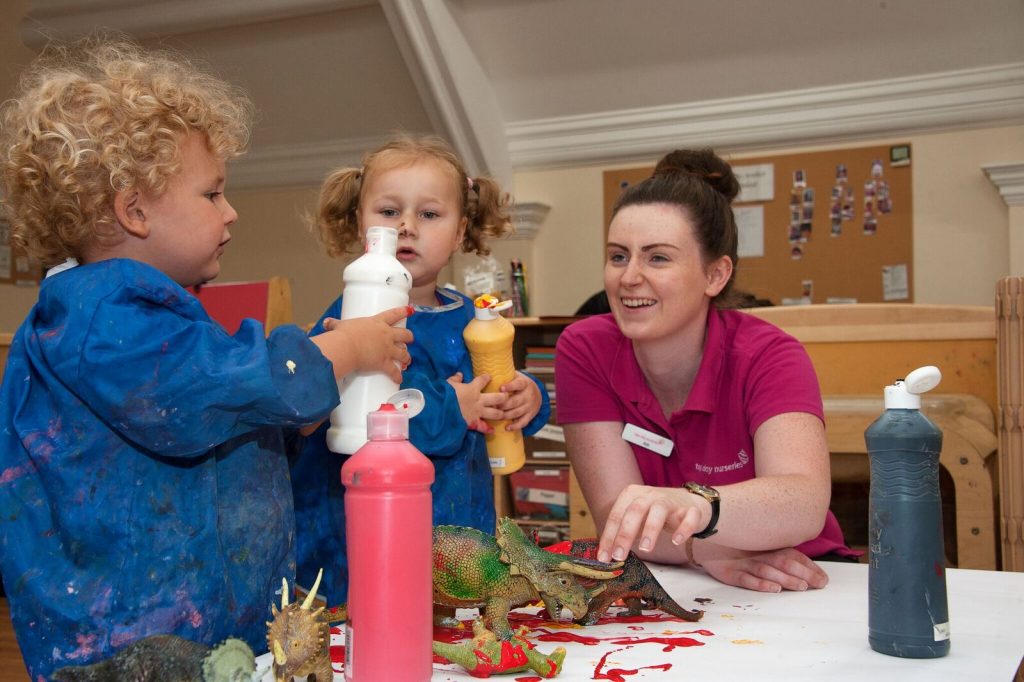Tops Day Nurseries have made a pledge to become more environmentally friendly. So far we have learnt a lot about the ecological dangers we produce through our day-to-day actions and have recently discovered an unexpected item that has already had a detrimental effect on the environment… Glitter.
Although much loved as an art and craft favourite, glitter is a microplastic, just like microbeads. Microbeads have already been banned in parts of the world and are set to become expelled in the UK. Environment Minister Nick Smith announced in July that cosmetics and products, such as toothpaste, that contain tiny plastic pieces called microbeads will be banned next year.
So why have Tops Day Nurseries put a stop to ordering any more glitter?
Glitter microplastics are an increasing problem. These tiny, shimmering specs of microplastic are virtually impossible to remove from the environment once there. When we’ve finished using plastic glitter for play, in decorating a card, sprinkling it into playdough or glue or painting with it, it goes into a bin or into the sink. It can’t be recycled because it isn’t practical to do so, it’s too small to separate out.
Over time large pieces of plastic break down slowly so there is at least the opportunity to pick it up or sieve it. Glitter enters the environment by landfill, through the air being blown around, it sticks to people’s hands and goes down the sink into the water system, it sticks to peoples clothes or mops, which go through the washing machine, and out into the water system.
We already know that 100% of mussels found off France and Belgium have ingested microplastics and many fish have too; so if you eat shell fish you more than likely have eaten microplastics already, along with the toxic additives that manufacturers use (for colour, flexibility etc.) which are known to copy oestrogen, and affect human fertility.
Ingredients like PET or PE or PP are particular red flags. Lush cosmetics have already swapped to using mineral glitter and starch-based lusters, after pressure from A Plastic Ocean and we all need to follow suit. At Tops we have already contacted our primary suppliers, the Consortium, and they are researching as we speak to find us sustainable alternative.
To minimise damage being inflicted on the environment we have already stopped using plastic aprons and are using cloth ones instead and we have removed single use items such as straws and balloons as well as one use plastic cups, cutlery or plates. The children are also encouraged to recycle and to care for the environment.
To name a few of our sustainability efforts, as a company we have a Zero to Landfill goal, we have started installing solar panels at our nurseries, all company cars are electric, we encourage the use of electric bikes over driving, we have installed time and light sensors, timers on water coolers and heaters, fuel saving magnets on gas and water mains, introduced bamboo toothbrushes and recycled paint.
As responsible people looking after the next generation, the very last thing we want to be doing is damaging the environment or risking their health, so we need to act now and stop this pollution.
“We hope that our future generation will be more conscientious about their impact on the environment. We welcome support from parents and families, we believe this is a cultural change which will benefit not only us, but our children even more” Cheryl Hadland, Managing Director.
